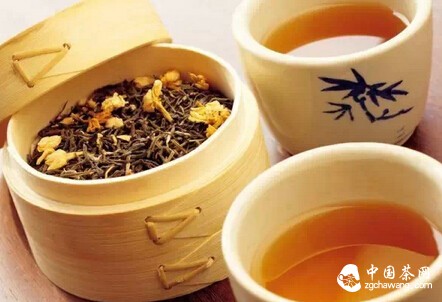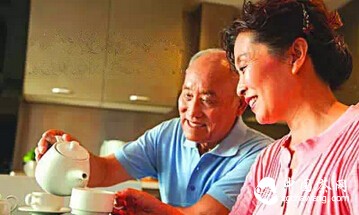
Can strong tea remove greasiness?
Strong tea can certainly cut through grease, but it also has some disadvantages; going overboard is as bad as not doing enough.
Many people believe that "a cup of strong tea after a meal can cut greasiness and aid digestion." This "traditional concept" seems reasonable but is actually wrong. "A cup of tea after a meal" and "a cigarette after a meal" are both harmful to human health. "A cigarette after a meal feels better than being an immortal" is a real experience for many smokers. After a meal, increased blood circulation in the digestive and respiratory systems causes the body to absorb nicotine and other harmful substances multiple times over; the "satisfaction" and "poisoning" are directly proportional! "Drinking strong tea after a meal" causes the tannins and polyphenols in tea to bind with iron and protein in food, leading to obstacles in the body's absorption of iron and protein. It is more appropriate to drink warm, weak tea one or two hours after a meal.

Strong tea does not sober you up; it worsens poisoning
It is common to see people drink strong tea immediately after alcohol, thinking that "tea can sober you up." This is actually unfounded. Drunkenness is caused by the poisoning effects of ethanol and acetaldehyde on the body. Sobering up relies on the liver's two enzyme systems to metabolize ethanol and acetaldehyde, which has nothing to do with tea. Drinking strong tea immediately after getting drunk is even more harmful. The caffeine and theophylline in tea can stimulate the body's nervous and cardiovascular systems, promote the absorption of ethanol, and worsen poisoning symptoms.

Tea can regulate psychological issues
Tea's health benefits for the body are undeniable, and its psychological health benefits are also irreplaceable by anything else. Throughout history, the common people's "firewood, rice, oil, salt, sauce, vinegar, tea" and the literati's "zither, chess, calligraphy, painting, poetry, wine, tea" find a common point in tea. This is no coincidence. People from all walks of life think of tea when psychological pressure becomes overwhelming, aptly put: "Busy for fame, busy for profit, steal a moment of leisure, and have a few cups of tea; suffering mentally, suffering physically, find joy in hardship, and pour another glass of wine." From a psychological perspective, drinking tea can temporarily make one forget worries and relax the spirit, making it a superior means of regulating psychological issues. A couplet at a tea pavilion writes well: "Good mountains, good water, enter the pavilion with a smile and no worries; coming hurriedly, going hurriedly, drink a few cups of tea each going their own way." On our life's journey, accompanied by good mountains and good water, we naturally should have a good mood.
Tea can be said to be the most culturally rich, civilized, and healthy natural beverage. People can enjoy tea alone and often use it to entertain guests. We Chinese, especially middle-aged and elderly people, often feel warm, intimate, solid, and satisfied with a cup of clear tea in hand.